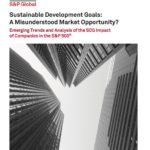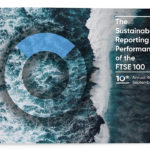Powerful new scrutiny of top-tier FTSE-listed companies social and environmental performance by SERM Rating Agency shows some disturbing gaps between best-in-class and their poorer performing sector peers, in terms of their net risk to capital value. In addition, Rating outputs show that risk exposure according to FTSE sector varies hugely: from AA (4-5%) for health, insurance and food and drug retailers down to B- (17-18%) for tobacco.
Outputs from the BV-SERM Baseline Ratings for all 425 UK and Irish companies listed on the London Stock Exchange with market capitalisation over £200M, launched today by Bureau Veritas (BV) and SERM, quantify the financial impact of companies safety, environmental and social risk exposure according to their net risk (%, £M) on a standard 27-point scale (AAA+ to C-). BV-SERM Ratings provide a cross-cutting strategic benchmark of companies performance in tackling their operational and reputational risk exposure, by evaluating the effectiveness of their risk reduction measures and communication to stakeholders.
Not surprisingly, the tobacco sectors gross risk profile of 47.6% of market capitalisation is the highest of all 40 FTSE sectors, followed by forestry and paper at 34.9%, mining at 34.8% and oil and gas at 34.5%. However, the oil and gas sector also shows the greatest risk reduction capability at 3.13 (on a scale 1 neutral 5 excellent) together with electricity (3.14), followed by water (2.76) and very surprisingly tobacco at 2.72. Nevertheless, the tobacco sector net risk to capital exposure at 17.5% (B-) is still the largest, followed by steel and other metals 15.2% (BB-), forestry and paper 13.6% (BB) and mining at 13.5% (BB).
Notable sectors showing particularly poor risk management capabilities include software and computer services (1.13), speciality finance, and electronic/electrical equipment both at 1.26, sectors where their social and environmental performance is traditionally seen as marginal, yet where their associated reputational/brand exposure can be disproportionately high. Taking UK/EIRE plc as an aggregated benchmark, its gross risk to capital is 14.5%, which divided by its risk reduction capability (1.97), leaves a net risk to capital of 7.4% (A).
BV-SERM Baseline Ratings take both tangible (operational) and intangible (reputational) risks into account, as well as factors associated with companies sectoral spread of activities and their ability to manage such risks. For greater credibility to stakeholders both financial and other groups, companies may elect to subject their performance in tackling their operational and reputational risk exposure to third-party scrutiny and verification, by undertaking a BV-SERM Verified Rating assessment involving verification visits from specialist BV auditors.
BV-SERM Baseline Rating outputs are currently being issued to individual companies and from 15 June are being made available on the SERM website. Says Jonathan Barber, SERMs MD: Our goal is for the BV-SERM Rating to be regarded by both corporates and the financial community as the key financial benchmark of corporate social responsibility. Verification significantly adds to the credibility of the Ratings and working with BV will enable the process to be rolled out internationally.



